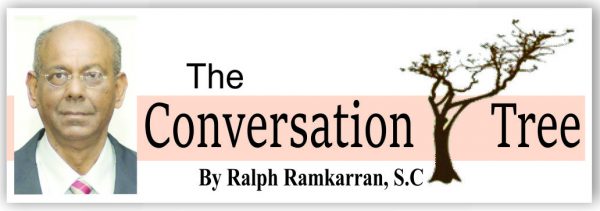 To the sounds of Buju Banton and the echoes of the Wismar and Sun Chapman massacres, Guyana celebrates its 53rd Independence Anniversary. Our political and economic future are as uncertain as they were 53 years ago. Guyana’s emergence from authoritarian rule in 1992 was not only a major landmark in its post-Independence history. The promises at the time were of “the dawn of a new era” and of “winner does not take all” politics. In the midst of economic reforms that promised a better life and the emergence of this newspaper that presaged freedom of expression, anticipation was high. After 27 years, half of our life as an Independent nation, hopes have been dashed. Our people have been kept in thrall to the logic of ethno-politics. No one now believes that either the APNU+AFC coalition or the PPP/C, by themselves, whichever is returned to office, has any intention of allowing this nation to unshackle the chains of domination politics.
To the sounds of Buju Banton and the echoes of the Wismar and Sun Chapman massacres, Guyana celebrates its 53rd Independence Anniversary. Our political and economic future are as uncertain as they were 53 years ago. Guyana’s emergence from authoritarian rule in 1992 was not only a major landmark in its post-Independence history. The promises at the time were of “the dawn of a new era” and of “winner does not take all” politics. In the midst of economic reforms that promised a better life and the emergence of this newspaper that presaged freedom of expression, anticipation was high. After 27 years, half of our life as an Independent nation, hopes have been dashed. Our people have been kept in thrall to the logic of ethno-politics. No one now believes that either the APNU+AFC coalition or the PPP/C, by themselves, whichever is returned to office, has any intention of allowing this nation to unshackle the chains of domination politics.
Guyana’s political scene is thankfully uncomplicated by the ideological and political divisions sweeping many countries today, causing uncertainty and concern. But we do not live on an island and international developments do influence our views. This newspaper in its editorial yesterday highlighted the drift to “Europe’s illiberal future” in its editorial. The USA has already gone that way under Trump, who equated neo-fascists with anti-fascists, saying that there are good people on both sides. Australia’s right wing government has been unexpectedly returned to office. Boris Johnson, Trump’s buddy in the UK, may win the leadership of the Conservative Party and become Prime Minister. Nigel Farage’s Brexit party, a neo-fascist outfit, is expected to win the UK-European Union elections. While these developments do not directly affect us, we cannot wholly eliminate potentially negative influences. They can lead to developments here by encouraging a hard line against the compromises that may be necessary to effect changes.
